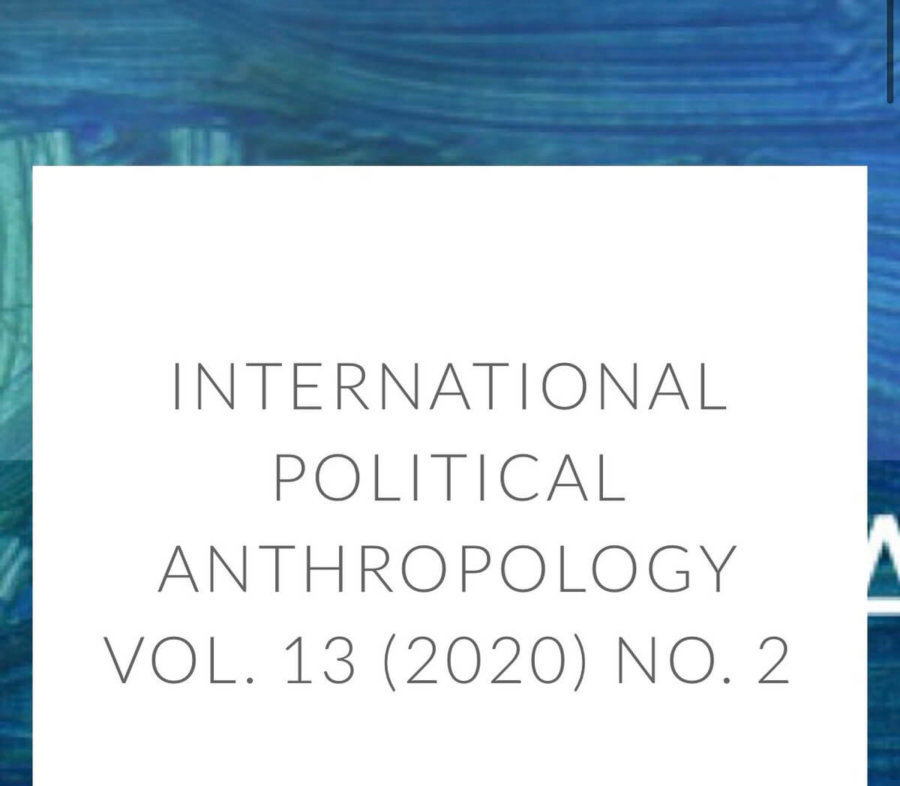Call for Papers for the International Political Anthropology

Call for papers for the International Political Anthropology online conference ‘Liminality, disease and politics’, 20-21 May 2021
Keynote Speaker
Arpad Szakolczai, Professor Emeritus, UCC, Ireland
Conference Description
The conference addresses a major issue of general theoretical relevance concerning the current pandemic crisis: what is the way in which sudden emergency situations can lead to or bring about permanent changes in politics. To start with, both disease and politics have a well-defined, distinct character. Starting with the first one, disease has an external, independent position with respect to the socio-political world, it can act without a mover and can move without an action. It is incommensurable, is the negation of regularities, is uncaused and unreasoned, it has a pure dynamism of its own, which can quickly lead into the multiplication and amplification of any growth. Infectious or epidemic diseases in particular, but even diseases of the cells like cancer, have a drive to possess the entire body, and thus can easily lead to escalating and multiplicative changes. The second one, politics is on the opposite side, it is concerned with establishing and using commensurability or ratio, having a definite structure, statutes, substance and meaning, laws and a common understanding of being, in order secure or striving for betterment. But what happens when in particular situations (as an approximate definition, we shall call it a liminal crisis) a sudden emergency might be taken up and be used to promote a generalizing, universalistic, even eschatological solution. In this regard the idea that emergencies might be exaggerated, or even purposefully mongered, will also be explored.
The conference is organised by the IPA, the panels chaired by Marius Ion Bentza (Polish Institute of Advanced Studies, [email protected]), Paul O’Connor (Sociology – CHSS, [email protected]) and Camil Francisc Roman (John Cabot University, Rome & Università di Roma LUMSA, [email protected]).
We invite scholars from all disciplines to submit 250-word abstracts along with a short c.v. to [email protected]. Deadline for the submission of abstracts is extended to 1 March 2021. Please, put “The Political Anthropology Conference” in the email’s subject line.
Agnes Horvath, Chief Editor, International Political Anthropology
Details about planned panels:
Paul O’Connor
Disease, Technology, and the Digital Panopticon
The current pandemic has supercharged the digitalisation and mediatisation of social life around the globe. Work, education, shopping, leisure activities, social interactions, religious services and even funerals have migrated online as people lock down and stay at home. This technologisation of the social is likely to prove among the lasting legacies of Covid-19. In particular, the ascendancy of digital platforms means the logic of the public arena is diffused through social life, including intimate spaces of sociability, relationships, family and home which were previously defined by their impermeability to the public gaze. As face-to-face interactions within physical settings are replaced by virtual interactions over digital platforms, previously private aspects of our lives are rendered visible to the critical gaze of non-intimates, subjected to universalising logics of datafication, quantification and rationalisation, and become the objects of deliberate performance and contagious imitation. The result is a further liquification of stable aspects of social life and the penetration of permanent liminality into the heart of everyday existence.
This panel will focus on both the dynamics and the implications of this process. In what ways do digital platforms render what was previously private visible, and how does this transform identities, relationships and behaviours? What does it mean for concrete relationships and intimate exchanges to be mediated by platforms according to an algorithmic logic that is inherently generalising and universal? How is the home changed as it returns to being a workplace and is rendered transparent to outsiders by zoom calls, digital surveillance of employees and the internet of things? As social life is increasingly channelled through platforms owned by a handful of technology corporations, how are these using the power at their disposal to shape us as digital subjects? What new forms of governmentality are emerging within the digital panopticon? And what are the prospects for reclaiming spaces of concrete participation and genuine presence amid the flux of digitalised unreality?
Marius Ion Bentza
The political culture of disease and the void
Among the many novelties (good and bad) that the 2020 crisis has brought to the world was a powerful, yet subtle at the same time, “political conquest” of the globe, which was manifest not in terms of *politics*, but in terms of *policies*, given that the policies employed by the various states in fighting the pandemic have proved to be surprisingly coherent. Quarantine, “social distancing” and the wearing of the surgical mask have been imposed as compulsory measures virtually everywhere in the developed countries, even though numerous differences existed in the degree or the speed with which they were implemented. Coincidentally, the developed countries also seemed to have been among the most affected by the pandemic — at least this is what figures show (e.g. the data provided by John Hopkins Coronavirus Resource Center, widely reported in media). These facts suggest that, from a sociological and anthropological perspective, one may see the 2020 crisis not only as a large-scale medical problem but as a “disease” of civilisation itself. It is now obvious that the advancement of globalisation carries along not only a basket of values, tastes, designs and styles of consumption (as McDonalds, Hollywood, MTV and multinational brands show it), but as a basket of conflicts, warfare, weaknesses, villains and disease, too (as the War On Terror and the current “War On Covid-19” show it). The more globalised we are, the more aligned we seem to be along a frontline. Political phenomena cannot be disconnected from political culture. Given that anthropologists no longer see culture as a static luggage of values, norms and structures but a dynamic mode of “doing things”, we may ask ourselves to what extent political culture has moved, too, from a static and positive “treasure” (e.g., the rule of law, transparency, democratic institutions etc.) to a dynamic collection that includes such “negative” content as the void, trauma, disease, scarcity, frontline, conflict, trickery, repression, denial, revolt and so on. In what way has this pandemic changed (nationally and internationally) the world of politics and policies? What is the role that the media play in this change? How does this affect our basic understanding of democracy? What kind of political world are we building up? For this panel, we invite papers that explore and move forward — theoretically or empirically — our understanding of the relationship between “the political” on the one hand and ”the void” — that is, the civilisational luggage of negative content — on the other hand, particularly in the light of the current pandemic.
Camil Roman
Parasites on to parasites and the birth of planetary metastasis
The entire public narrative on the contemporary pandemic and its effects is framed by a taken for granted dichotomy between the realm of human life and its aggression by an external biological parasite. While at the face of it this is evidently true, it is also not the whole story. What if we take one step further and begin with the startling observation that the fabric of our social, modern life rather than being external to the phenomenon of parasites is itself made up of a series of mutually encapsulating, parasitic relations? Even more, what if we realize that these parasitic relations are human-made imitations, and thus receptacles and multipliers of biological parasites? In as far as viral parasites are lacking self-sufficiency they are contrary to nature, absurd invisible non-entities whose purpose is constituted by permanent, rapidly succeeding mutations. Such parasitic appetites are rooted in a malicious and sterile mimicry of life, an overly excitable pulsation that rejects form in favour of pure adaptability and connectivity. Parasites are therefore neither here nor there, while at the same time being everywhere, living on networks, communications, junctions and relations, subduing them and inverting their meaning or rightful dispositions. They are in other words invasive, acquisitive agents with transformative powers over themselves and their host-bodies, agents of connection and adaption who take advantage of the sensuousness of forms and their joy of life, thriving on pure relationality and the generalized displacement of objects and beings. In as much as modern techno-science, the modern state and the modern economy are all active agents of global connectivity, adaptability and the continuous transformation of subjects, what we are witnessing in the current pandemic is not simply a human response to an external disease, but an escalating and mutually reinforcing concatenation of various systems of human and non-human parasitic dynamics. This process has created by all purposes and means the first on-going planetaryGleichschaltung recorded in human history. It is also on its best way to conjure the absurd and threatening realm of numberless necessities without cause, a most apocalyptic possibility of generalized planetary metastasis with no escape, no reason, and no goal. The present panel is particularly interested in papers addressing any one or several of the following range of issues: (a) transformation/adaptation/connectivity/acquisitiveness and the general ontology of parasitism; (b) parasites and the pandemic politics of the modern state; (c) parasites and the pandemic politics of techno-science; (d) parasites and the pandemic politics of economic relations; (e) tricksters as parasites; (f) the political ‘metabolization’ of parasites: planetary metastasis?



